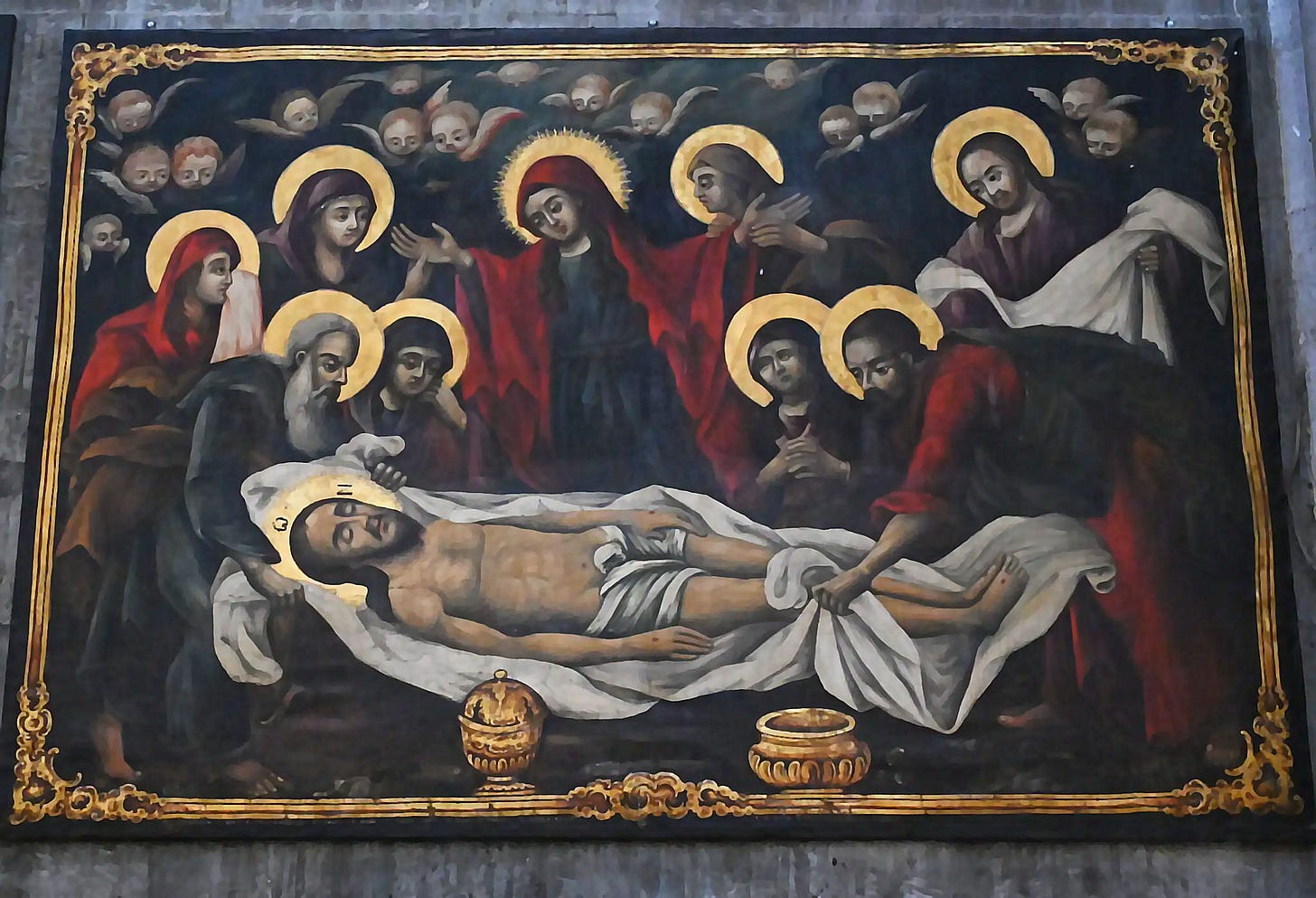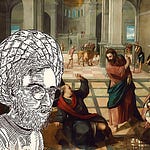Solo flight on the problem of Hell as the central anti-Christian ingredient of Christian doctrine, with reference to the David Bentley Heart translation of the New Testament.
What happens when, instead of the stone the builders rejected (Christ) becoming the head of the corner, the stumbling block (scandalon) that Christ put behind him becomes the capstone? “Christianity” becomes “Satan’s masterpiece”?1
Songs: “Golden Apple” & “He Doesn’t Mind It,” by Cullah; “Numb Fingers” by Killing Flies; “This New Hell is in Good Working Order” by The Pissmisters.
A few notes:
The problem isn’t so much the body but the mind’s attachment to the body, to physical survival, and the correlating pleasures of the body, the seemingly positive things.
There’s nothing wrong with enjoying the body, but to use the body to satisfy the mind is the essence of sin, as correlates with the Pauline denunciation of “the flesh.”
There’s a deeper meaning that gets lost, which is about more than just bodily pleasure, or indulgence in bodily things, and has to do with self-will and self-interest.
Romans chapter 8 verse 6 to 7:
For the mental inclination of the flesh is death, but the mental inclination of the spirit is life and peace. Hence the mental inclination of the flesh is enmity to God, for it is not subordinated to the law of God, nor indeed can it be. For those existing in flesh cannot be pleasing to God.
Salvation, for the mind, whether or not it involves resurrection of the body or some kind of physical survival, correlates with the orientation towards the flesh, towards the body, towards the world. When it’s the mind-self that wants its own things, its own pleasures, and that is seeking salvation, it gets only “Hell.”
Wanting to serve God for its own reward, as its own reward, is the solution. But if one wants to serve God in order to be saved, one is pursuing self-interest.
It is a very subtle kind of orientation that Christ is pointing towards, and it can’t be encapsulated metnally. It can’t be done justice to, with the idea of saving the soul by renouncing the body and the flesh.
Self-interest equals sin.
Job and Jesus are examples of going against self-interest in order to submit to God’s will. They’re very explicit.
The basis of self-interest is self-preservation, and self-preservation has two aspects: preservation of species and self-preservation.
Those are our two interests and they correspond with power and sex.
And these currencies have no value in the world after, because it is beyond biology. To identify with these instincts is to value the things of men over the things of God, as Jesus says to Peter when he calls him Satan.
It is this identification that binds an individual to the world. Because these are the values of the world, the things of men, the satanic mechanism, they correspond with the scapegoat mechanism that Rene Girard writes about: the world system and how it operates, via the identification with the body and the body’s pursuits, and whatever is required for the body to survive.
Hence, only a willingness to lose one’s life can save it, just as the soul who casts the stone, who scapegoats, aligns with the Satan by denying his own sinfulness.
Purgatory is the only real hell, insofar as any soul that is in the running to be a soul, must enter the forge that creates a soul out of un-individuated, raw soul matter. It must, if not in life then in death, undergo a purging of those instincts, impulses, desires and attachments that are not of God but of the world.
Every soul that is to be saved must undergo some experience of being damned, therefore, of being cast into a furnace for purification. The additional cognitive belief of an eternal hellfire would perhaps make of such an experience something rather more hellish, however.
Every sin committed by men was on Christ’s head because it was on everyone’s head, and Christ is the Sum/Sin/Son of Man: Everyman.
Hence, to rescue the lost sheep is the Jesus-imperative, because 99 is not enough. The flock is the body of Man destined to become the Body of Christ, and it is incomplete without that lost sheep.
Leave no man behind!
That’s why Jesus says the lost sheep is more important than the 99 that aren’t lost, because it’s lost. It is why the shepherd rejoices over that one sheep when he finds it, in a way he doesn’t rejoice over the 99 that were never lost.
The sinful man is more essential to Jesus’ mission than any other. That is Jesus’ purpose. He’s not here to heal the healthy. He’s here to heal the sick.
Thus, damnation is not an option for any soul, because all souls are indispensable parts of that future Christ-body.














